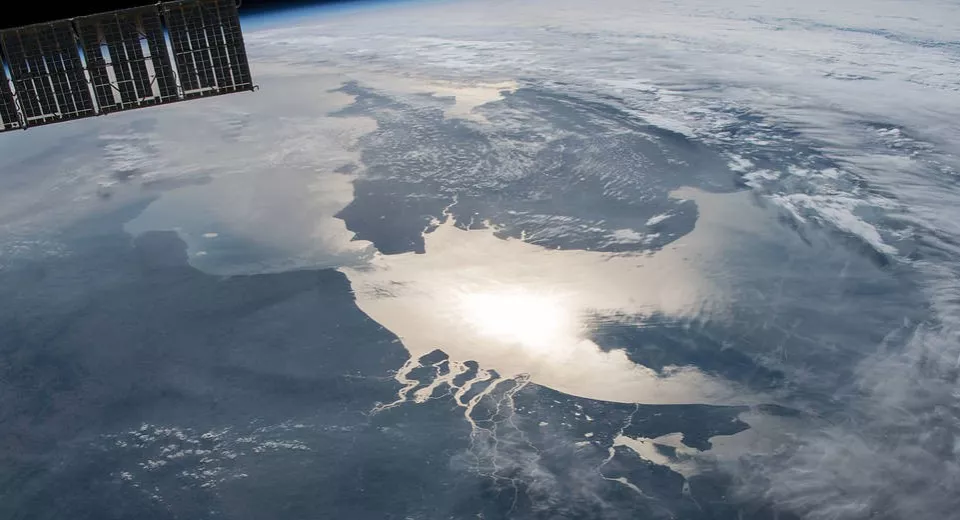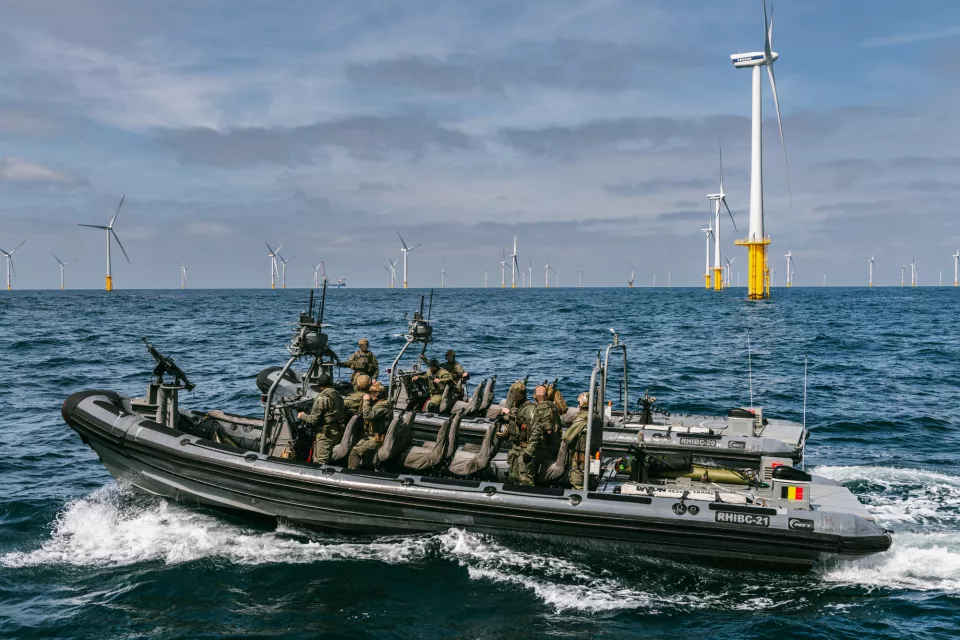More policy attention for protection of critical maritime infrastructure
On 12 February 2025, the Belgian House of Representatives' Committee on National Defence held a meeting on the Maritime Information Crossroads (MIK) and its relationship to our critical infrastructure. Frigate Captain Kurt De Winter, also director of the Maritime Operations Centre (MOC) in Zeebrugge, discussed the operation of the MIK and highlighted the maritime challenges Belgium is facing.
Strategic importance of the North Sea
Belgium plays a crucial role as a maritime country. The Belgian part of the North Sea is not only one of the busiest shipping lanes in the world, but also hosts essential critical infrastructure such as wind farms, energy and data cables and the LNG terminal in Zeebrugge. Protecting this infrastructure against espionage, sabotage and cyber attacks is a priority.

Tasks and functioning of the MIK
Located in Zeebrugge, the MIK's main task is to ensure security and compliance with legislation at sea. It coordinates actions against illegal discharges, human trafficking and other maritime crimes. To this end, it works closely with Defence, Maritime Police, Customs & Excise and DG Shipping. In addition, the MIK monitors all ships that want to enter Belgian ports, including non-NATO ships that pass through Belgian waters.
New legislation and international cooperation
Since 1 January 2023, the new Belgian Shipping Code has been in force, which regulates, among other things, camera legislation at sea. In addition, the National Authority for Maritime Security (NAMB) plays a central role in the coordination of maritime security. Collaborations with partners such as MarCom (UK), North Seal Platform (six North Sea countries) and the EU Coastguard Forum strengthen international security cooperation.
Maritime threats and security
The Belgian coastguard is structured around two pillars: the Maritime Rescue and Coordination Centre (MRCC) in Ostend, which focuses on safety and rescue operations, and the MIK, which focuses on security. Threats range from illegal smuggling and acts of sabotage to grey warfare such as GPS spoofing and cyber attacks. A striking feature is the increase in Russian hybrid vessels in our waters, which receive extra attention from the services.

Policy recommendations and plans for the future
During the hearing, numerous questions were asked about operational challenges, cooperation with private partners and the use of new technology such as AI. Frigate Captain De Winter emphasized the importance of efficient cooperation and additional investments, such as the purchase of an additional patrol vessel and the further development of AI applications within the MIK.
Going forward
The committee chair proposed to organise a visit to the MIK for the committee members to gain a better insight into its operation. Blue Cluster will continue to follow these developments closely given the impact on the maritime and offshore industry.
Stay informed of further updates via our website and our other channels!